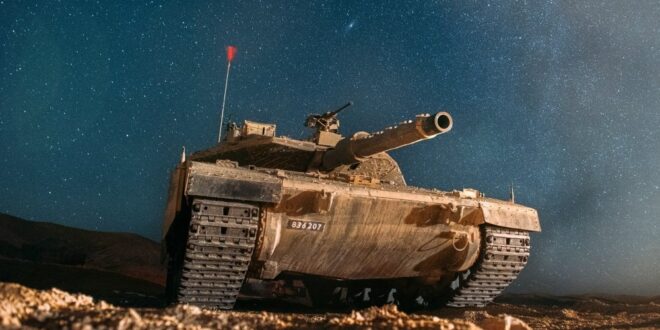Gregg Priddy
Whatever Iran’s role in Hamas’ attacks, provoking Tehran could have devastating consequences.
As Israel responds to the horrific attack by Hamas last weekend, a number of American observers have argued that the United States needs to take direct action against Iran as the ultimate sponsor, widening the conflict. While there is no question that Iran has provided material support to Hamas, and thereby shares some responsibility as a state supporter of terrorism, the initial U.S. intelligence suggests that Iran did not order the attack and that top Iranian officials were taken by surprise. Apart from the question of moral responsibility, however, the United States also obviously has to consider the practical costs to its interests of escalation against Iran, which are immense. Most of those arguing for action have not in any way addressed these costs. The United States should offer Israel strong support as they take action to dismantle Hamas in Gaza and warn Iran that widening the war would be disastrous for them, but also refrain from taking any actions that would draw in Iran. Our goal should be to keep the conflict narrowed to Gaza if possible.
If the United States were to undertake military action against Iran, it would be the first time in many decades that the enemy would possess the capability to inflict widespread damage and casualties outside its own immediate vicinity. Iran’s ballistic missiles, cruise missiles, and suicide drones have been mass-produced and have demonstrated their accuracy in episodes like the September 2019 attacks on Saudi oil facilities in Abqaiq and Khurais, the October 2018 missile strike against Islamic State elements in northeast Syria, and the retaliation against U.S. forces in Iraq in January 2020 after the U.S. drone strike which killed Revolutionary Guard Gen. Qassem Soleimani. When we engaged Saddam Hussein’s Iraq in 1991 and 2003 and Muammar Gaddafi’s Libya in 2011, neither had systems with anywhere near this sort of accuracy and effectiveness.
One consequence that we should expect to see in a U.S.-Iran clash is a disruption of oil supplies. U.S. aircraft would definitely need to use bases in the United Arab Emirates and Qatar, with U.S. forces deployed in Saudi Arabia and Kuwait also likely being involved in supporting the mission. Iran would likely respond with missile and drone strikes against critical oil infrastructure, which pose a greater threat to oil than trying to interdict shipping in the Strait of Hormuz, given the long lead-time to repair some of these facilities. Iran chose to target only a subset of the critical units of Abqaiq in 2019, allowing Saudi Aramco to route around the damage at a facility that runs well below nameplate capacity. The 2019 strike demonstrated their capabilities, designed to stay below the threshold at which President Trump would involve U.S. forces. This time, it would likely aim to inflict maximum damage with a larger target set. Defenses have improved marginally, but a large enough drone swarm and ballistic missiles could cause a significant oil disruption. With 2024 a critical presidential election year, a broad range of knock-on domestic impacts on the United States could result from a lasting oil price spike and a subsequent recession.
This also would put Gulf Arab partners in an awkward position vis a vis their own populations. The Hamas attack against Israel has, regrettably, had broad and deep resonance in the Arab world as judged by the reaction on social media. It is very much akin to the 2006 war between Hezbollah and Israel, where Arab public reactions transcended Sunni-Shia divisions even as sectarian conflict raged in Iraq. Gulf Arab states would not be able to halt a U.S. decision to strike Iran and would inevitably be placed in the position of having to side with Washington even as they faced Iranian reprisals and resulting economic dislocations.
Lastly, a direct U.S.-Iran clash would probably precipitate Iran’s withdrawal from the Nuclear Non-Proliferation Treaty (NPT), leaving it with massive damage to its facilities but retaining the know-how to rebuild it in a few years. It would increase, not decrease, the likelihood that Iran will eventually move from threshold status to becoming a nuclear weapons state. Iran hawks often posit that a brittle Iranian regime would fall due to such a conflict, but that is hard to predict and would not necessarily result in a cessation of nuclear activities. Other regime types could still want the geopolitical benefits of nuclear weapons or threshold status.
It is possible that either Iran or Israel could choose to widen the war themselves or that Hezbollah could do so, but the United States should seek to discourage this to the extent possible. Hezbollah has a much larger capacity to inflict harm on Israel than Hamas via its increasingly sophisticated missile arsenal, but Iran has seen this as a deterrent to prevent Israel from striking its nuclear facilities rather than as something they would use up and exhaust lightly. There has already been a series of small incidents on Israel’s northern border, but this can happen without the situation reaching a critical mass where it escalates out of control. Whether they can stand by as Israel rolls into Gaza in force is still an open question, but there are strong arguments for restraint on the Iranian side as well as for Hezbollah. It is a danger, but one which Hezbollah and Iran may seek to keep under control. Israel also could eventually decide that it needs to take Iran on directly, but the dire consequences of doing so could prevent that. Given the consequences for U.S. regional interests and the fact that it would not permanently resolve the nuclear file, Washington should encourage restraint.
The best outcome is the one the Biden administration seems to be pursuing—keeping the conflict as contained as possible. The United States should stand with Israel as they root out Hamas in Gaza and give Israel plenty of leeway in what is clearly going to be a gruesome fight, understanding that collateral damage and large-scale civilian casualties cannot always be avoided. However, U.S. interests pull strongly against the idea of widening the war to punish Iran. It is unfortunate, but enemy capabilities do matter when making these calculations.
Greg Priddy is a Senior Fellow for the Middle East at the Center for the National Interest.
 Geostrategic Media Political Commentary, Analysis, Security, Defense
Geostrategic Media Political Commentary, Analysis, Security, Defense





